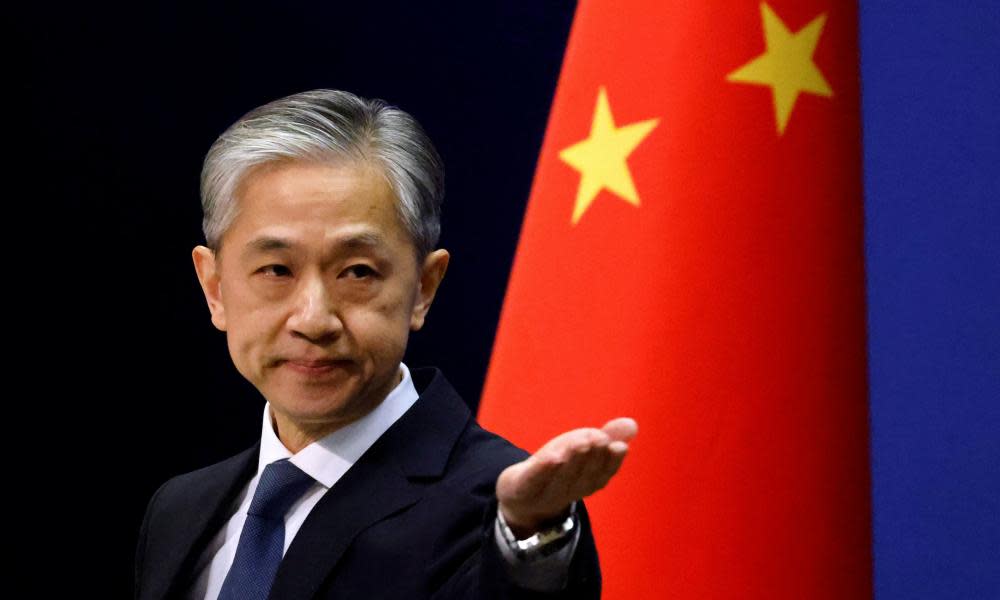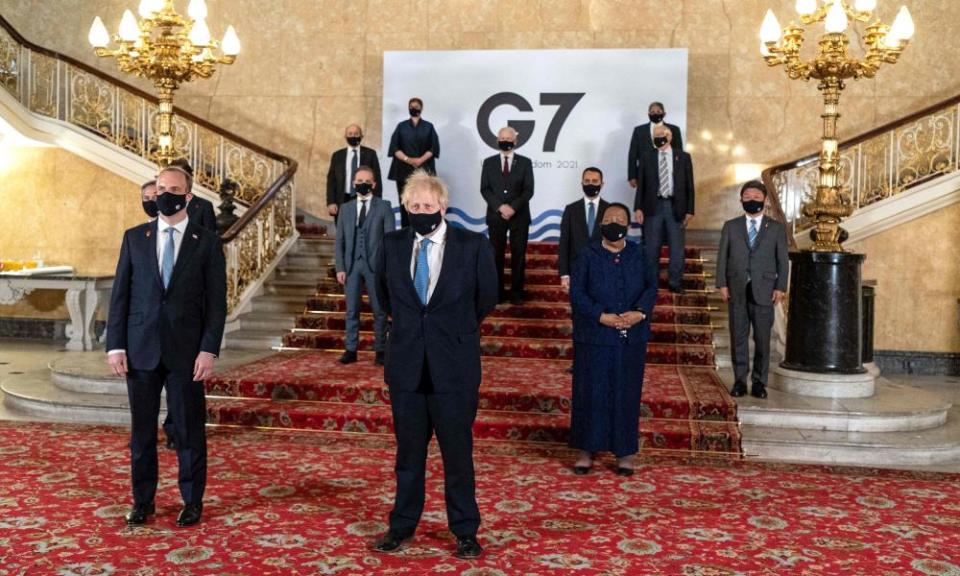Beijing accuses G7 ministers of interfering in China’s affairs

China has rejected accusations of human rights abuse and economic coercion, made by G7 foreign ministers, accusing them of “blatantly meddling” in China’s internal affairs, calling their remarks groundless.
“Attempts to disregard the basic norms of international relations and to create various excuses to interfere in China’s internal affairs, undermine China’s sovereignty and smear China’s image will never succeed,” said the foreign ministry spokesperson, Wang Wenbin. “They should not criticise and interfere with other countries with a superior mentality, and undermine the current top priority of international anti-epidemic cooperation.”
The officials from the G7, which includes the US, Japan, Germany, Britain, France, Italy and Canada, met in London this week to discuss issues of common concern. Analysts said that although topics such as pandemic relief were discussed, China’s challenge to the existing “liberal world order” was chief among their concerns.
China’s treatment of its ethnic minority populations, its policy on Hong Kong and the situation in the Taiwan Strait, were mentioned in a lengthy communique released by the group on Wednesday.
It said: “In line with its obligations under international and national law we call on China to respect human rights and fundamental freedoms.”

The foreign ministers urged China “to participate constructively in the rules-based international system”. The communique also called for “meaningful participation” by Taiwan in World Health Organization forums and the World Health Assembly, and recognised its “successful contribution” towards tackling the Covid-19 pandemic.
Wang responded by saying that Taiwan’s participation in international organisations had to be handled in accordance with the “one China principle”. Beijing regards Taiwan as a part of its own territory.
Yet despite their concerted calls on Wednesday for China to play a “constructive role” in international affairs, the G7 foreign ministers’ statement refrained from spelling out concrete steps to confront Beijing. Analysts said this was because countries such as Italy and Germany were particularly concerned about potential reprisals if the language was too threatening.
The G7 group has recently been increasingly critical of China’s domestic policies. It condemned the Hong Kong national security law and in March issued a statement expressing “grave concerns” over electoral changes in the Chinese territory.
Wang urged the G7 countries to actively contribute to the global economic revival and help developing nations, “rather than cause frictions in international society, and disrupt the process of global economic recovery”.
He added: “We urge relevant countries to face up to their own problems, correct their selfish behaviour in the fight against the pandemic, and stop the wrongful generalisation of the concept of national security.”
Wang also cited a recent poll, commissioned by the Alliance of Democracies Foundation, that showed the US was seen around the world as more of a threat to democracy than Russia and China. He observed that the G7 countries had not commented nor taken any action with regard to the survey.

 Yahoo News
Yahoo News 
